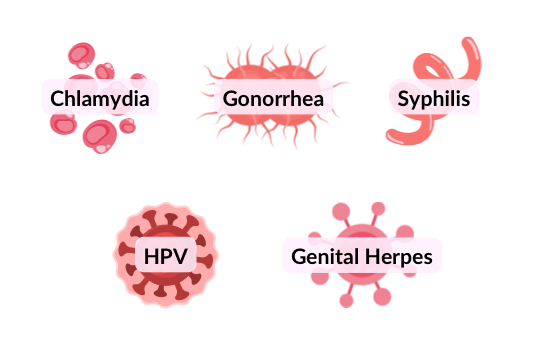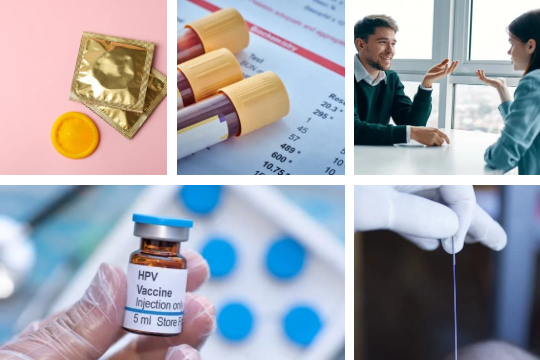Sexually transmitted infections (STIs) often show no symptoms, yet they can have long-term effects on your health if left untreated. Routine STI screenings are a proactive way to safeguard your well-being and that of your partners. This guide explains the importance of regular STI testing, what to expect during a screening, and how often you should get tested.
What Are STIs?
STIs are infections passed through sexual contact, including vaginal, anal, and oral sex. Some of the most common STIs include:

- Chlamydia
- Gonorrhea
- Syphilis
- Human Immunodeficiency Virus (HIV)
- Human Papillomavirus (HPV)
- Genital Herpes
- Trichomoniasis
While some STIs may cause symptoms like discharge, pain, or sores, many remain asymptomatic, making regular testing crucial for detection and treatment.
Why Are STI Screenings Important?

1. Early Detection
Routine screenings identify infections before they cause serious health problems, such as infertility or organ damage.
2. Prevention of Spread
Untreated STIs can be easily transmitted to sexual partners. Testing allows for timely treatment, reducing the risk of further spread.
3. Protecting Fertility
Certain untreated STIs, like chlamydia and gonorrhea, can lead to pelvic inflammatory disease (PID), which may cause infertility.
4. Peace of Mind
Regular testing provides reassurance about your sexual health and helps you make informed decisions about your relationships.
When Should You Get Tested?
The frequency of STI testing depends on your age, sexual activity, and risk factors:
- Annually: For sexually active individuals under 25 or those with new or multiple partners.
- During Pregnancy: Screening is recommended as part of prenatal care to protect both mother and baby.
- After Unprotected Sex: Testing is essential if condoms or other protective methods were not used.
- If You Experience Symptoms: Such as unusual discharge, pain, or sores.
What to Expect During an STI Screening
The Testing Process

STI screenings are straightforward and typically involve one or more of the following:
- Blood Test: Detects infections like HIV, syphilis, and hepatitis.
- Urine Test: Identifies bacteria causing infections like chlamydia and gonorrhea.
- Swab Test: Samples from the cervix, vagina, or throat to test for infections.
Is It Painful?
Most STI tests cause minimal discomfort. Your healthcare provider will ensure the process is as comfortable as possible.
How to Prepare for an STI Test
- Avoid Douching: For at least 24 hours before your test.
- Schedule Appropriately: Avoid testing during your period for more accurate results.
- Be Honest: Share details about your sexual history with your provider to ensure the right tests are conducted.
Risk Factors for STIs
While anyone can contract an STI, certain factors increase your risk:
- Multiple sexual partners.
- Unprotected sex.
- History of STIs.
- Alcohol or drug use impairing judgment.
- Age: Young adults (15–24) account for nearly half of new infections annually.
How to Reduce Your Risk

- Use Protection: Condoms and dental dams reduce transmission risk.
- Vaccinations: The HPV and hepatitis B vaccines offer protection against specific infections.
- Open Communication: Discuss STI testing with your partners.
- Routine Testing: Even in monogamous relationships, regular testing ensures continued health.
When to Seek Treatment
If you receive a positive result, don’t panic. Many STIs are treatable with antibiotics or antiviral medications. Your healthcare provider will discuss next steps, including treatment and partner notification.
Supporting Your Sexual Health
Routine STI screenings are a simple yet powerful tool to maintain your sexual and reproductive health. Testing is confidential, quick, and an essential part of a healthy lifestyle.
Protect your sexual health with routine STI screenings at the Women’s Center of Athens. Schedule your confidential appointment today and take control of


